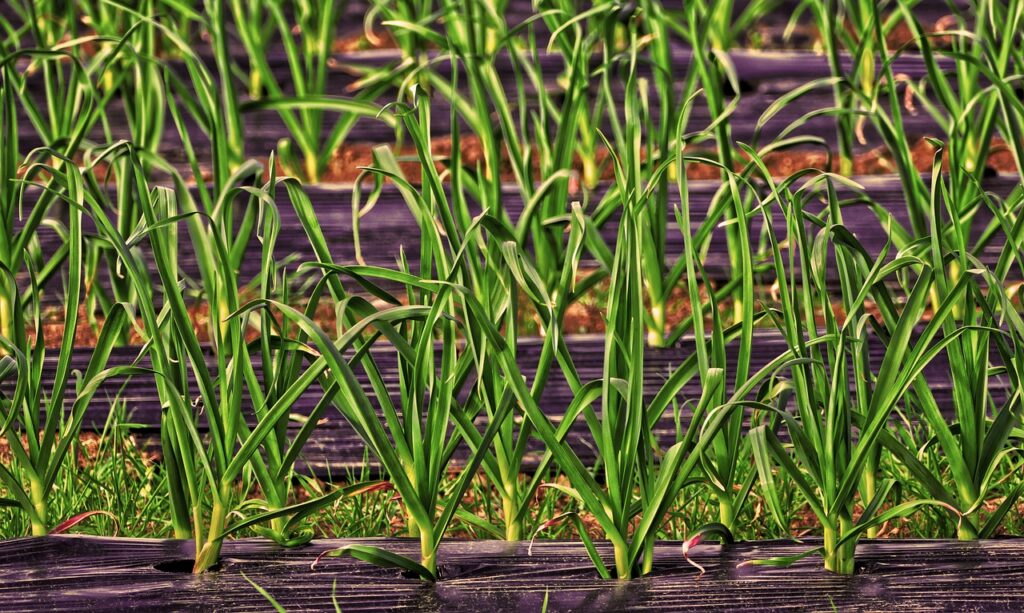Introduction: The Blanket from the Garden
In the realm of gardening, mulch can be seen as an unassuming hero, serving as protection that enriches soil, helps conserve moisture, and encourages healthy growth of plants. From the simple leaves of autumn to that golden summer straw, mulch serves an essential role in the ecosystem of your garden and offers a variety of benefits for both the gardener and the plants. In this article, we’ll discover the power of mulching and explore its numerous benefits and methods to increase its effectiveness for your gardens.

1. Understanding the advantages of Mulching
Mulching can provide a myriad of benefits for your garden, such as:
- Retention of Moisture: Mulch helps preserve the soil’s moisture, by decreasing the rate of evaporation keeping the roots of plants wet, and decreasing the need to water frequently.
- Weed Suppression: A dense layer of mulch hinders the growth of weeds by blocking sunlight stopping the seeds of weeds from germinating and decreasing the need for manual herbicides and weeding.
- Soil protection: Mulch is a protection barrier that shields the soil from the effects of erosion caused by water and wind as well as the impact of raindrops with a heavy force.
- Temperature regulation: Mulch insulates the soil by reducing temperature extremes and making it a more stable habitat for the roots of plants, particularly on hot summer nights and cool winter nights.
- Nutrient Enrichment: When organic mulches break down they add important organic matter to the soil, enhancing the soil with vital nutrients and increasing soil fertility and structure over time.
2. Making the Right Choice in a Mulch
When you are choosing the best mulch to plant in your garden, you should consider factors like accessibility, cost as well as aesthetics and function. The most common types of mulch are:
- Organic Mulches: Compost straw, leaves shredded grass clippings chips, pine needles, and bark.
- Inorganic Mulches: gravel, landscaping material along with plastic mulch.
Select mulching materials according to their suitability for your particular gardening requirements and also their suitability with your garden’s aesthetics and environmental concerns.
3. Applying Mulch Properly
The correct application is essential to reap the maximum benefits from mulching your garden. Follow these guidelines for efficient mulching:
- Prepare the soil: Water and weed the soil thoroughly before laying mulch to make sure that the soil is clean and moist. surface for the soil.
- Apply a layer of mulch: Spread a 2-inch layer of mulch evenly across the surface of the soil, taking careful not to place mulch on top of branches or trunks of trees which could cause pests and rot.
- Refill as required: Watch the mulch layer during the growing season, replenish it when it breaks down or decays, and maintain a constant amount of mulch to increase its effectiveness.
4. Strategies for Mulching in Different Areas
Different areas in the garden could require different methods of mulching for optimal outcomes:
- Vegetable and Flower Beds: Utilize organic mulches like compost, shredded leaves, or straw to improve the soil, ward off the growth of weeds, and hold moisture in your flower and vegetable beds.
- Trees and shrubs: Spread a layer of wood chip or bark mulch on the trees and shrubs to preserve soil moisture, maintain temperatures, and safeguard the roots from damage.
- Pathways and Walkways: Use pebbles, gravel, or mulch made of recycled materials to construct low-maintenance paths that increase the beauty of your garden, while reducing erosion and soil compaction.
5. Tips for Mulch Maintenance
Regular maintenance is crucial to ensure the efficiency of mulch in your garden:
- Weed control: Watch the mulch layers for signs of weed development and then remove the weeds that grow to keep them from battling with your plants for water and nutrients.
- Decomposition of mulch: Over time organic mulches are broken down and decompose and require replenishment to ensure their effectiveness. Be aware of your mulch and add new mulch as necessary to maintain the required thickness.
- Pest management: Inspect your mulch regularly to look for evidence of insects, such as snails, slugs, or rodents. Then, take the appropriate steps to reduce pest populations and minimize the destruction of plants.
Final Conclusion: Harnessing the Power of Mulch Mulch
Mulch acts as a quiet protector in the garden, bringing many advantages that encourage healthy plant growth, help conserve resources, and improve the aesthetics of the landscape. When they understand the benefits and strategies that mulching offers, gardening enthusiasts can make use of its potential to create sustainable and thriving gardens that thrive all year long. Therefore, spread the mulch take care of your garden, and enjoy watching the mulch’s magic turn your yard into a paradise of beauty and abundance.
Happy mulching as well as may the garden prosper with the protection of mulch!
Checkout: Top Free Home Gardening Books